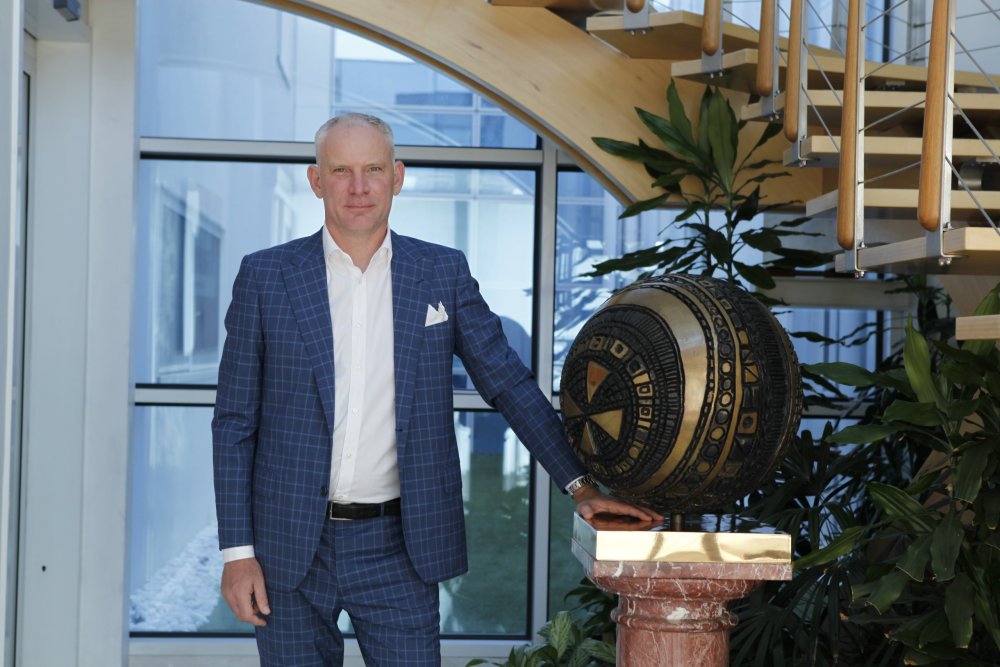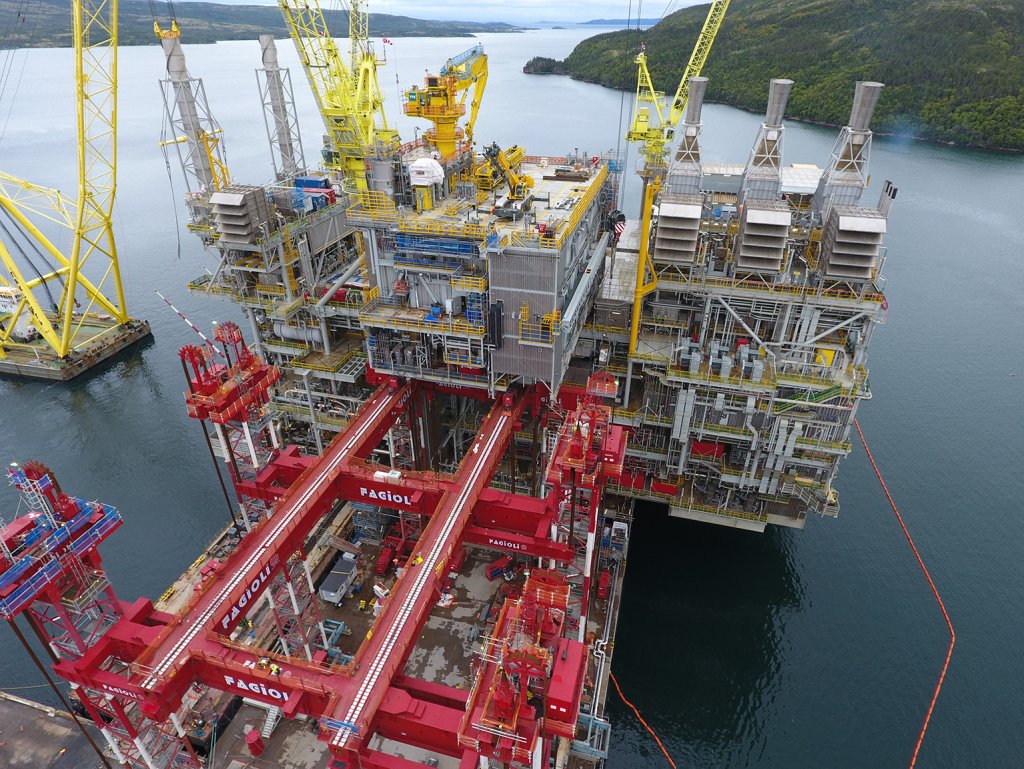
Fabio Belli, CEO of Fagioli is interested in building bridges in more ways than one. In this exclusive interview in the year that he celebrates working with Fagioli for 20 years, he opens up about rebuilding the collapsed bridge in Genoa as well as creating horizontal working relationships.
In conversation with Joanne Kelleher, BBN.
“I started working in Fagioli back in 2001 and became CEO in 2009 after several experiences in companies related to engineering and construction activities. During these last 20 years I have seen the great changes and evolutions that have occurred in the market at all levels and sectors. Clients have started asking for complex requests which require a considerable revised approach compared to the past. It has been necessary to invest in engineering, up-to-date equipment and personnel to follow the “new requirements” of the market: bigger modules and industrial components to be handled, challenging projects, improved quality, HSE and a sustainability philosophy. To mention a few”
When it comes to competiton, Belli says “The competition has become ever more noticeable in the traditional transport and lifting sectors. The world around us has changed: communication systems, a greater attention to regulations, a greater awareness of safety and the environment, a different sense of civic responsibility, these are all factors that have helped change the way we do business. We have accepted the challenge by identifying new markets that are more technologically advanced, that we can place alongside our more traditional sectors.
We have had the courage to face these markets in the knowledge that the only way to guarantee the survival and development of the entire group is by progressing from Italian markets to internationally competitive contexts.”
Today Fagioli’s international activities represent 80% to 85% of their revenue stream. “In a short space of time, we have achieved unthinkable results, which have helped convince us that we are on the right path. This result has been achieved thanks to a significant effort that requires professional development at all levels, a transformation of skills and above all a radical change in mentality: in order to develop a market culture, you also need to understand that our current markets are less rewarding and more complex than in the past. Learning to deal with these new markets requires imposing a new approach, from the initial proposal stage to the final realisation stage.”
When asked for his opinion on the current challenges facing the transportation and project logistics Industry, Belli says, “I believe that unlike other sectors, the main challenge is not only related to technical improvements but mainly to the financial sustainability of the business. We are now capable to “handle” more or less everything, everywhere in the world in harsh geographical contests, however the investments necessary to perform the projects are not adequately remunerated. There is a considerable miss-match between prices paid by client and investments needed to execute complex projects. The second challenge is related to the safety/security of the personnel involved in projects developed in some specific countries. Political turbulences are really affecting the life of workers.”
What opportunities exist for companies like Fagioli at the moment?
“Fagioli is considered as one of the leading companies in engineered heavy transport and lifting as well as project logistics activity and we are one of the few companies in the world that can provide both services at the same time. This is a great opportunity and a great responsibility at the same time for us to perform demanding and overall projects under our own capability. It’s crucial for us to adapt and follow the opportunity given by the industry and surf the bigger waves in order to keep on working and performing. “
Outstanding Projects
Due to contractual restraints, Belli was unable to expand further on the three strategic contracts recently awarded to Fagioli in Africa, Asia and the USA, however he did tell us about some of the projects that have stood out for him to date.
“Back in 2012-2014 we were involved in the salvage and re-floating project of the Concordia wreck (114,000 tonnes) which was a “take it or leave it” operation: we got one shot at this and we succeeded.”
And another favourite, “In 2018, the Morandi bridge in Genoa collapsed and we were involved in the demolition operations in 2019. We were also contracted for the transport and installation of the new bridge (named S. Giorgio) between 2019 and 2020. An impressive job under big pressure from the media and from the Italian Minister of Infrastructure who pushed to give the people in Genoa their bridge back in less than 2 years.”

Referring to oil and gas industry projects, Belli says, “Between 2013 and 2017 we were contracted for the transport and assembly operations of an offshore platform in Canada including the load out onto a dedicated semi-submersible ship, of a 44,000-tonne Utility Process Module in South Korea by means of no. 64 Fagioli skid shoes (1,000-tonne capacity each). This last module headed to Canada and it was assembled with another five modules weighing up to 4,500 tonnes by means of SPMTs, elevator system, crawler cranes, to complete the offshore platform. This was a really challenging project.”
Do you have an opinion on the European standardisation of road permits across the EU?
“I think it will take time to have a European standardisation of road permits. There are too many factors to be considered, from the local rules which differs from each country, the time to obtain road permits, infrastructural matters due to the different geographical configurations, the heavy transport equipment to be used in different European countries. Please also consider that notwithstanding what “we” normally say…different rules may allow for local market “protection”. All these aspects are to be considered, evaluated and eventually, solved. We are working on it and some steps have been made, however we are unfortunately far away from a standardisation.”
What needs to change to improve our industry?
“Tech, innovation, sustainability, leadership, supply chain, transparency are all important factors to improve the shipping industry. I’d like to also add another aspect which I think could be of benefit for all: a better cooperation between clients and suppliers. Being involved in one project means like participating as a “family” to an event, a more “horizontal approach” between client and supplier helps to complete the challenging tasks required by that particular project. When I refer to horizontal approach, I mean a cooperation between two entities, talking and working at the same level, for a mutual purpose. In some cases, it’s more a “vertical approach” but an important and vital factor for the industry is to come back to a more industrial approach: not all industrial processes can be guided by finance. The risk is extremely high if we confuse the two things.”
Do you have other plans to expand? What are your growth plans for the coming years?
“We are currently “looking” if there will be opportunities but we cannot at the moment unveil. Of course, our strategic decisions follow the rapid changes of the market, with the growth in some sectors and the decrease or freezing situation in some others. It’s not easy to plan a growth expansion these days, but we are working every day to find the keystone to invest for a profitable future in terms of engineering, equipment and specialised personnel.”
The last word…
“We have to get the right return on our investments. We are investing capitals in advanced equipment, we take great risks for which we are not paid. This needs to change.”
—

